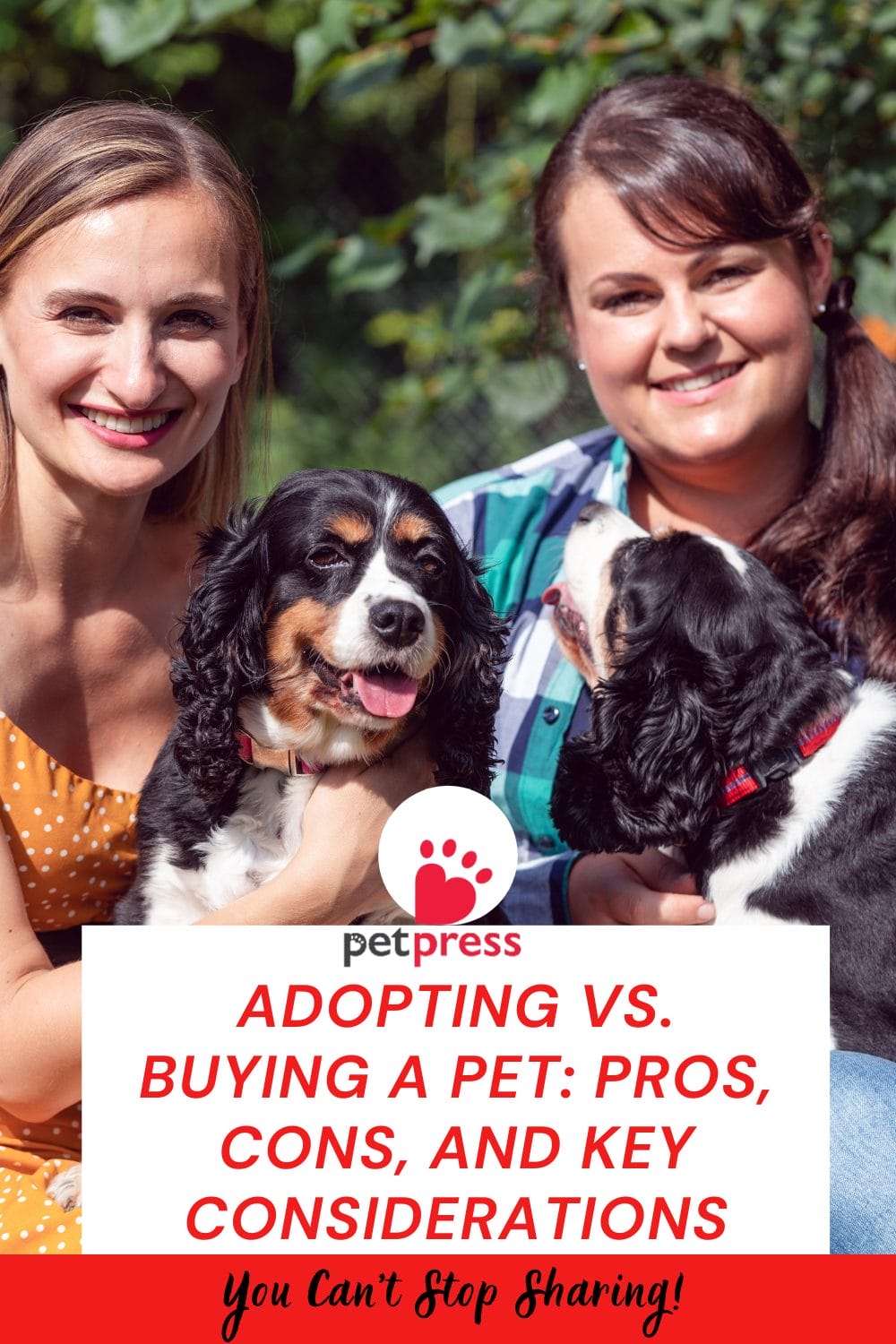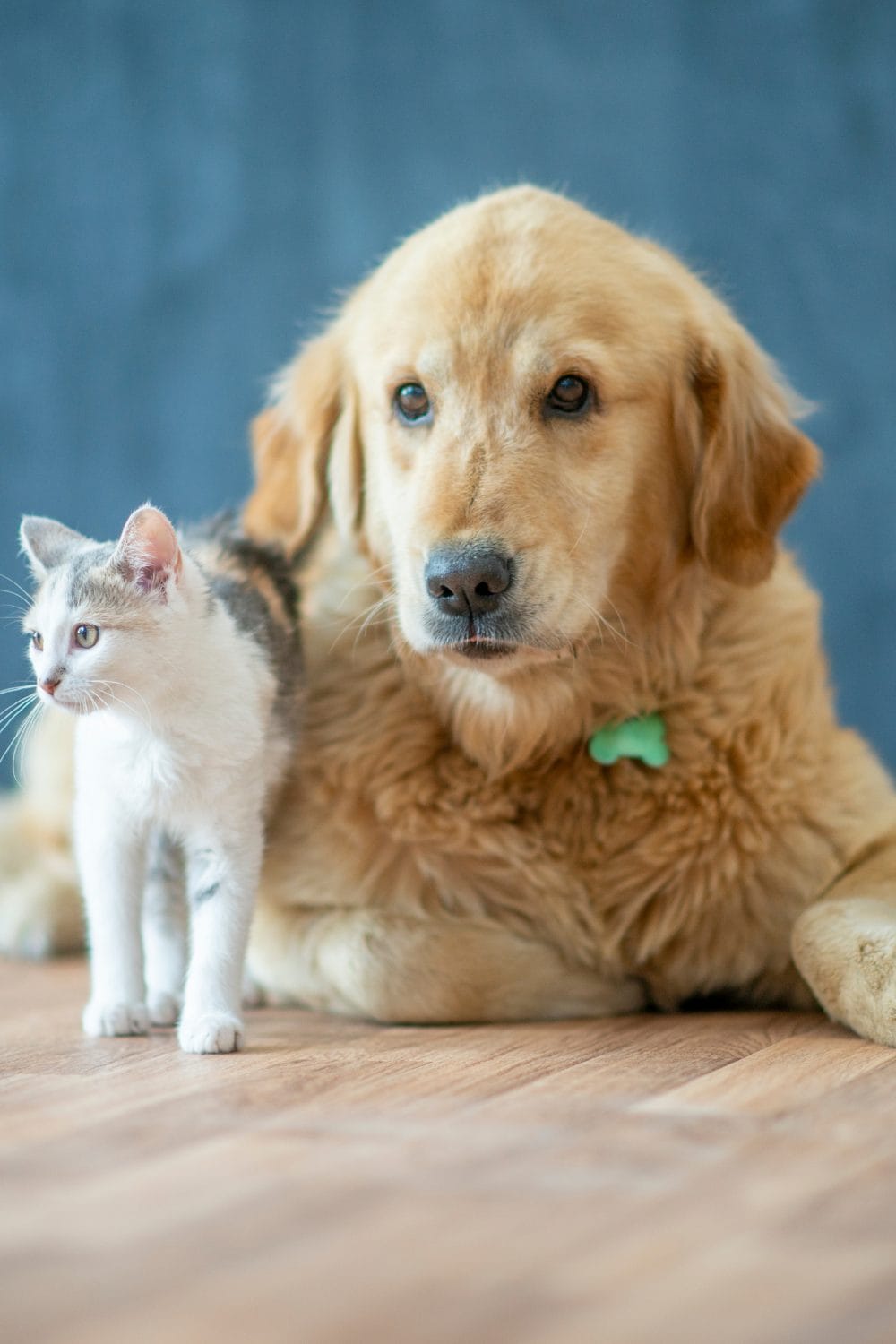
Bringing a pet into your life is an exciting and life-changing decision.
Whether you’re longing for the companionship of a cat, dog, rabbit, or another furry friend, the first step is deciding how to welcome your pet.
Two primary options are available: adopting a pet from a shelter or buying one from a breeder, pet store, or individual seller.
Both adoption and purchasing come with unique benefits and challenges, making it important to weigh your options carefully.
In this guide, we’ll delve into the significance of this decision, what it means Adopting vs. Buying a Pet, the pros and cons of each option, and factors to consider to make the best choice for you and your potential pet.
The Significance of This Decision

Owning a pet is a long-term commitment that impacts your daily life, finances, and emotions.
Choosing between Adopting vs. Buying a Pet influences your experience as a pet owner and the broader issue of animal welfare.
Adoption supports shelters and can save a pet’s life. Meanwhile, buying offers a specific type of pet, often from controlled breeding, which may appeal to those with particular preferences.
Understanding the implications of each route helps ensure your choice aligns with your values, lifestyle, and goals as a pet parent.
What Does Adopting a Pet Mean?
Adopting a pet typically involves acquiring an animal from an animal shelter, rescue group, or similar organization.
These pets may have been abandoned, surrendered, or rescued.
Adopting not only provides these animals with a second chance at life but also contributes to reducing the number of homeless pets.

Key Features of Adopting a Pet
- Diverse Selection: Shelters house a wide range of pets, from purebreds to mixed breeds, in various ages and temperaments.
- Often Includes Health Checks: Adopted pets usually come vaccinated, spayed/neutered, and microchipped.
- Lower Costs: Adoption fees are generally lower than the cost of purchasing from a breeder.
What Does Buying a Pet Mean?
Buying a pet involves acquiring an animal through a breeder, pet store, or private seller. This route often appeals to individuals looking for specific breeds or characteristics.
Key Features of Buying a Pet
- Predictable Traits: Reputable breeders provide detailed lineage and breed-specific traits, making it easier to predict size, behavior, and health.
- Puppies and Kittens: Many buyers prefer to raise their pet from a young age.
- High Costs: Purchasing the right pet is often significantly more expensive, with added expenses for initial health care and supplies.

Pros and Cons of Adopting a Pet
Pros of Adopting
- Saving Lives: Adoption reduces euthanasia rates and gives animals a second chance.
- Affordability: Adoption fees are much lower than buying, and pets often come vaccinated and spayed/neutered.
- Ethical Choice: Supporting shelters helps combat overpopulation and unethical breeding practices.
- Variety: Shelters offer a wide selection of pets in terms of age, breed, and temperament.
Cons of Adopting
- Unknown History: The pet’s background, including trauma or health issues, may be unclear.
- Limited Young Pets: Shelters may have fewer puppies or kittens available.
- Potential Behavioural Challenges: Some adopted pets require patience and training to overcome past neglect or abuse.
Pros and Cons of Buying a Pet

Pros of Buying
- Predictable Traits: Buyers can select specific breeds with known characteristics.
- Younger Animals: Purchasing often provides the chance to raise a puppy or kitten.
- Control: Buyers can research breeders to ensure ethical and healthy practices.
Cons of Buying
- High Costs: Buying pets, especially purebreds, can cost thousands of dollars.
- Ethical Concerns: Unethical breeding practices, including puppy mills, are a significant concern.
- Overpopulation Impact: Buying doesn’t address the problem of homeless pets in shelters.
Key Differences Between Adopting and Buying a Pet
| Aspect | Adopting | Buying |
| Cost | Lower fees, includes some medical care | Higher cost, additional expenses |
| Pet Variety | Wide range of ages and breeds | Specific breeds and traits |
| Ethical Considerations | Supports shelters, reduces overpopulation | May inadvertently support unethical breeders |
| Health Guarantees | May have unknown health history | Breeders often provide health screenings |
| Availability of Young Pets | Fewer puppies and kittens available | Easier to find young pets |

Factors to Consider Before Deciding
- Your Lifestyle: Are you prepared for the responsibilities of owning a pet? Consider the time, energy, and resources required.
- Type of Pet: Are you set on a specific breed or open to mixed breeds? Your preference may influence your decision.
- Budget: Adoption is typically more affordable, but both options come with ongoing costs like food, medical care, and grooming.
- Ethical Values: If animal welfare is a top priority, adoption may align more closely with your values.
- Experience: First-time pet owners might find shelter pets easier to adopt due to the guidance and support provided by rescue organizations.
- Space and Environment: Some breeds require specific environments and exercise levels, which might influence whether you adopt or buy.
Conclusion
Deciding whether to Adopting vs. Buying a Pet is a deeply personal choice that depends on your circumstances, preferences, and values.
Adoption offers a chance to save a life and support ethical practices, while buying allows for tailored choices in breed and characteristics.
No matter which path you choose, the most important consideration is providing a loving, safe, and nurturing home for your new companion.

Frequently Asked Questions
It depends on your preferences and circumstances. Adoption supports shelters and is often more affordable while buying offers specific breeds and traits.
Most shelters ensure pets are vaccinated, spayed/neutered, and healthy before adoption. However, some may have unknown health histories.
Research breeders thoroughly, visit their facilities, and ask for health certifications and references to avoid supporting unethical practices.
Yes, many shelters and rescue organizations have purebred pets available. You can also look for breed-specific rescue groups.
Adoption fees typically range from $50 to $300 and often include initial medical care. Buying a pet can cost $500 to $5,000, depending on the breed and source.
- How to Celebrate a Dog’s First Birthday on a Budget: 2026 Guide - February 18, 2026
- Best Shampoo for Sensitive Skin Dog Grooming: 2026 Guide - February 12, 2026
- 40+ Aesthetic Names for White Dogs (2026 Unique & Rare List) - February 6, 2026


GIPHY App Key not set. Please check settings